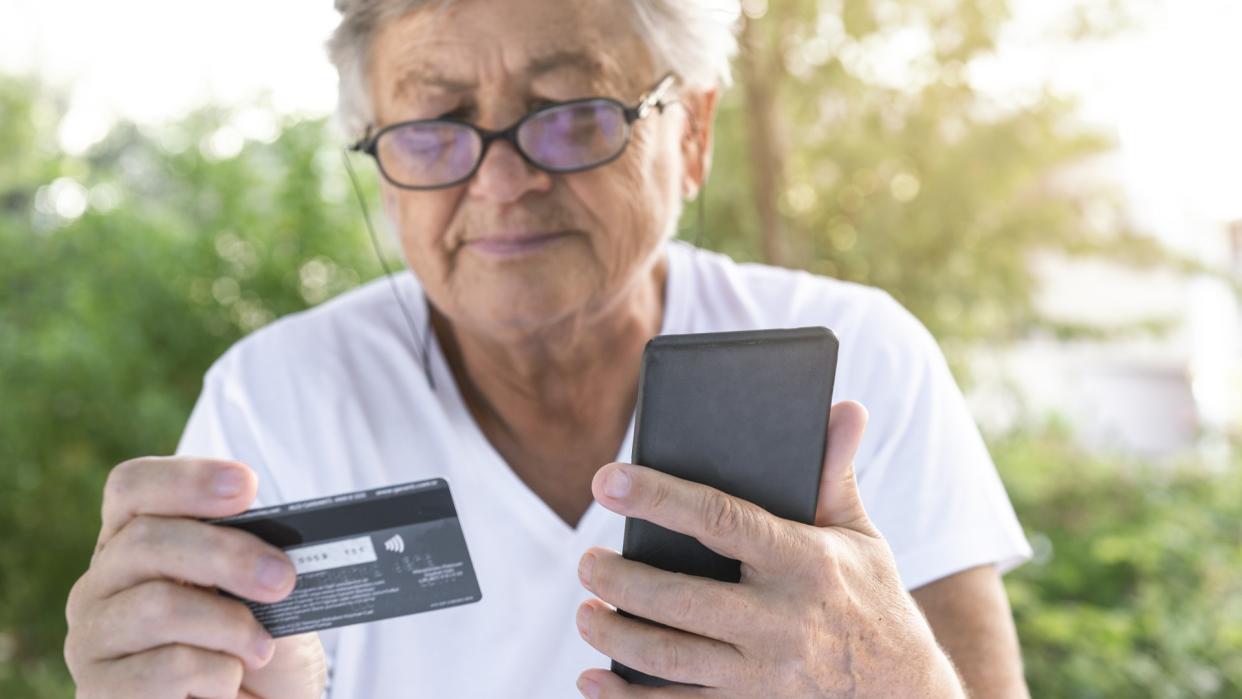How to Prevent Fraud With Your Bank Account

Being the target of bank fraud is never good, to put it mildly. Unlike credit card fraud, it can be much more difficult to recover your money if it is fraudulently withdrawn from your bank account. It may still be possible to get your money back, but you will save yourself a lot of headaches if you can avoid the situation in the first place.
And “financial identity theft,” as the Insurance Information Institute calls it, is a serious issue. The organization reports that 47% of Americans experienced financial identity theft in 2020, for a total loss of $712.4 billion.
The good news is that there are some easy steps you can take to avoid bank account fraud. I asked some security and banking experts for their best tips to avoid banking account fraud, and they gave us some basic steps that anyone can follow.
Beware: 5 Everyday Things You Do That Can Trigger a Bank Fraud Alert
Warning: Don’t Get Caught in These Fake Check Scams
Check Bank Statements Frequently
Checking your bank statements frequently can be your first line of defense when it comes to fraud. Fraudulent transactions will often stick out like a sore thumb and be easy to spot.
“It’s important to check your financial account balances frequently to monitor activity and keep an eye on your accounts,” said Kristine Batch, SVP, senior regional delivery manager at UMB Bank. “How quickly you report fraud to your bank could affect whether you are responsible for all or a portion of the fraudulent checks or charges.”
In other words, time is of the essence. If you spot a potentially fraudulent charge on your bank statement, let the bank know right away.
Beware of Phishing Scams
Phishing scams are a common way for fraudsters to gain access to your accounts. Batch said banks will never ask for personal information. A common tactic of scammers is to send out emails impersonating banks in which they ask you to provide your username and password. That is a sure sign of a scam.
“Businesses like banks, internet providers and mortgage companies will never ask you to confirm or share your personal or financial information online,” Batch said. “If you receive a message pretending to be a provider, delete it and report it immediately.”
Also See: Venmo Is Riddled with Scams – Is Zelle Any Safer?
Don’t Reuse Passwords
It can be tempting to use an easy-to-remember password or reuse the same password for several accounts. Hari Ravichandran, CEO and founder of digital security company Aura, said this is inviting scammers to steal your information.
“One of the most common ways bad actors can get into your accounts is by logging in with your credentials from other sites that have been previously exposed on the dark web,” Ravichandran said.
“With this in mind, consumers should create differentiated, strong passwords for each account. Password managers are a great tool for users to generate, store and use these various passwords with ease.”
Browsers such as Google Chrome and Mozilla Firefox have integrated password managers these days. Alternatively, you can use a third-party password manager, such as LastPass.
Pay With Credit
Paying with a debit card can seem like a good idea if you are trying to limit the interest and penalties that can come with credit cards. However, using a debit card also can make you more vulnerable to fraud.
“Credit cards offer a safer way to pay for online items because you can dispute the charges if you never get the goods or services or if the offer was misrepresented,” Batch said.
In addition, credit card issuers have the ability to perform a chargeback, which allows them to reverse a charge that may be fraudulent. With a debit card, once the money is moved out of your bank account (usually within 2-3 business days), it can be difficult to get your money back. But chargebacks can be performed as many as 120 days after the charge.
Learn: How To Get Fraudulent Charges Removed From Your Credit Card
Keep Your Computer Up to Date
Keeping your computer up to date is an important part of preventing attackers from gaining access to your computer. If your computer is not kept up to date, it could have security vulnerabilities that allow fraudsters to steal your information, such as log-in details.
“Before accessing any financial information, users should make sure their devices are running the most up-to-date software,” Ravichandran said. “These updates will install the latest security patches to better protect you from hackers. Turning on automatic updates in your settings is a good way to ensure you are always protected.”
Don’t Use Public, Unsecured Networks for Online Banking
Using the Wi-Fi network at your favorite coffee shop may be convenient, but it’s not the most secure. That’s especially true if the network is not password protected. Consider using a virtual private network (VPN) if you want to access your banking information while on a public network.
“VPNs will encrypt your sensitive data as it travels back and forth between your device and your banking institution, keeping it safe from hackers,” Ravichandran said. “This becomes especially important when accessing financial information on public Wi-Fi — like in airports or coffee shops — where it is more susceptible to being stolen.”
More From GOBankingRates
Learn More About GOBankingRates’ Best Checking Accounts of 2022
Top Bank Account Promotions for January 2022 – Avoid Fees and Earn Up to $1,500
This article originally appeared on GOBankingRates.com: How to Prevent Fraud With Your Bank Account
